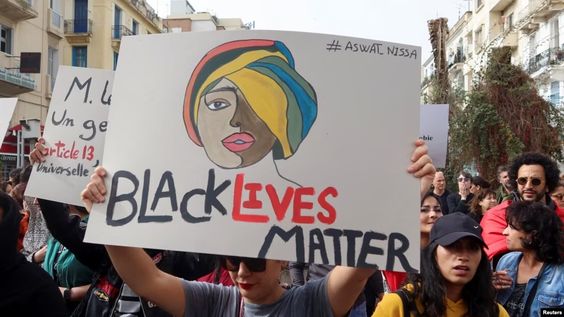Africa
President of Tunisia Rejects Racism Accusation After Migrant Crackdown

10 days after pledging a crackdown on illegal immigration in rhetoric the African Union criticised as “racialized hate speech,” Tunisia’s president condemned racism on Sunday and warned of potential legal repercussions for offenders.
President Kais Saied described migration as a plot to alter Tunisia’s demography by making it more African and less Arab in a statement he issued on February 21 ordering security personnel to deport all illegal immigrants.
According to rights groups, hundreds of migrants were imprisoned by the police, hundreds of them were forcibly evicted from their houses by landlords, and hundreds more lost their jobs.
Numerous immigrants said that they had been attacked, including having stones thrown at them by youth gangs in their communities, and rights organisations claimed that police had been reluctant to react to such assaults.
In a statement on February 23, Saied rejected racism, although he later reiterated his belief that immigration is a demographic conspiracy. Saied had not previously made a public threat that the attacks might result in legal action before Sunday.
He didn’t go into detail, but in his statement from Sunday, he called the claims of racism a campaign “from known sources” against the nation.
Nonetheless, he went on to say that Tunisia was proud to be an African nation and announced a modification of the visa requirements for African nationals, allowing stays of up to six months rather than three without the need for residency as well as a year for students.
He claimed that immigrants who had overstayed their welcome might leave without being fined because many of the authorities that had sought to deport them had shown they couldn’t afford the charges.
He framed his campaign against illegal immigration as a fight against human trafficking and cited a legislation against discrimination that was implemented in 2018 to make the point that any verbal or physical assaults on immigrants will be criminally punished.
According to opposition parties and rights organisations, Saied’s crackdown on immigrants, which coincided with the detention of important opposition figures, was intended to draw attention away from Tunisia’s economic difficulties.
In 2021, Saied seized the majority of the country’s power by shutting down the elected parliament, enacting a system of rule by decree, and revising the constitution—actions that his opponents, including the major political parties, have dubbed a coup.
On January 14, 2023, demonstrators take part in a demonstration in Tunis, Tunisia, against Tunisian President Kais Saied.
Reuters
